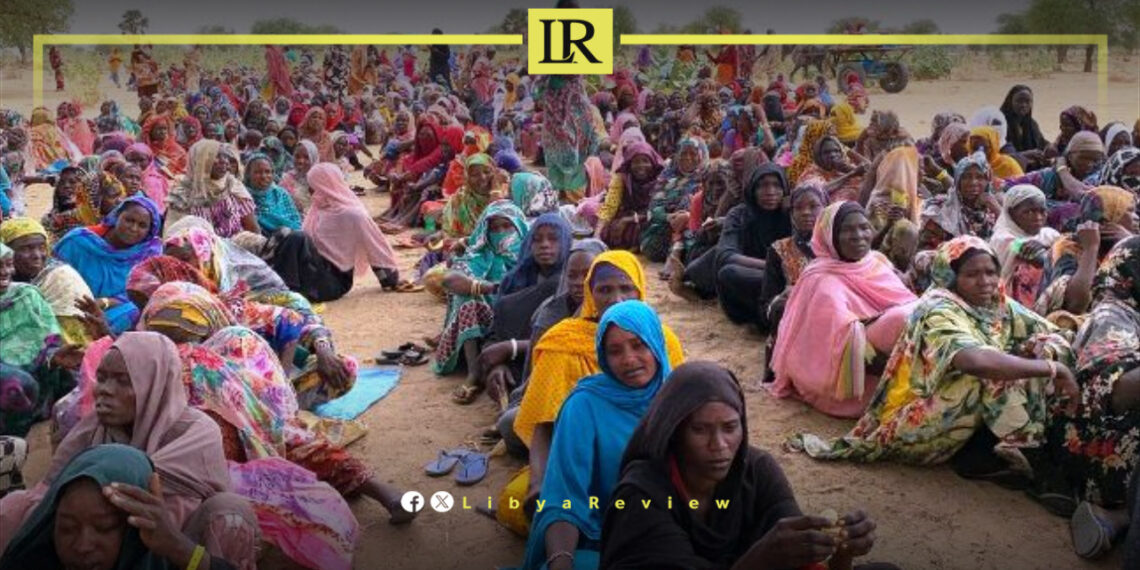According to Sudanese radio station Radio Dabanga, unofficial estimates indicate that more than one million Sudanese refugees are currently in Libya.
This figure includes approximately 210,000 who fled to Libya since the outbreak of war in Sudan on April 15, 2023. The conflict, now nearing its second year, has displaced 3.3 million Sudanese to neighboring countries, as per the United Nations High Commissioner for Refugees (UNHCR).
Libyan cities such as Tripoli, Benghazi, Kufra, and Ajdabiya have become key hubs for Sudanese refugees seeking safety. However, the journey to Libya is fraught with danger. Refugees often cross through perilous routes, facing threats from smugglers, natural hazards, and extreme conditions.
Refugees traveling to Libya enter through three main crossings, each presenting unique risks. The Kufra Crossing, the busiest route, regularly documents refugee arrivals, while the southern desert crossing exposes travelers to life-threatening conditions such as extreme heat and treacherous terrain.
Along their journey, Sudanese refugees encounter exploitation by human traffickers, extortion by smugglers, and dangers like fuel tank explosions caused by soaring temperatures. These hardships exacerbate their already dire situation as they flee the violence engulfing their homeland.
The influx of Sudanese refugees has placed a significant strain on Libyan host cities, particularly Tripoli, Benghazi, Sabha, Kufra, Ajdabiya, and Misrata. These cities are struggling to provide adequate humanitarian support amid rising food prices, fuel shortages, and overcrowded shelters.
Ajdabiya, in particular, has emerged as a key transit hub, hosting approximately 10,000 Sudanese families in addition to the 360 families already residing there before the war. Many families are forced to share overcrowded rental homes, with three to five families often living in a single house due to high costs.
Despite ongoing efforts to provide emergency aid, medical care, and shelter, the scale of the crisis has overwhelmed local resources. The increasing number of refugees highlights the need for a coordinated international response to address the humanitarian, security, and social challenges facing both refugees and host communities.


